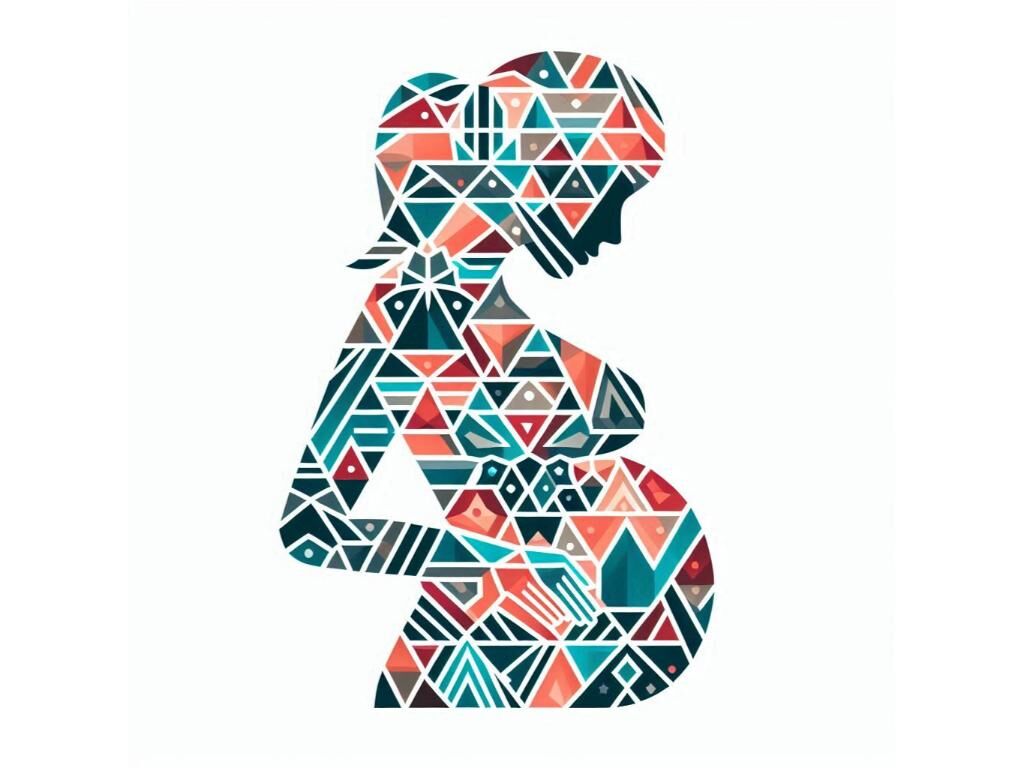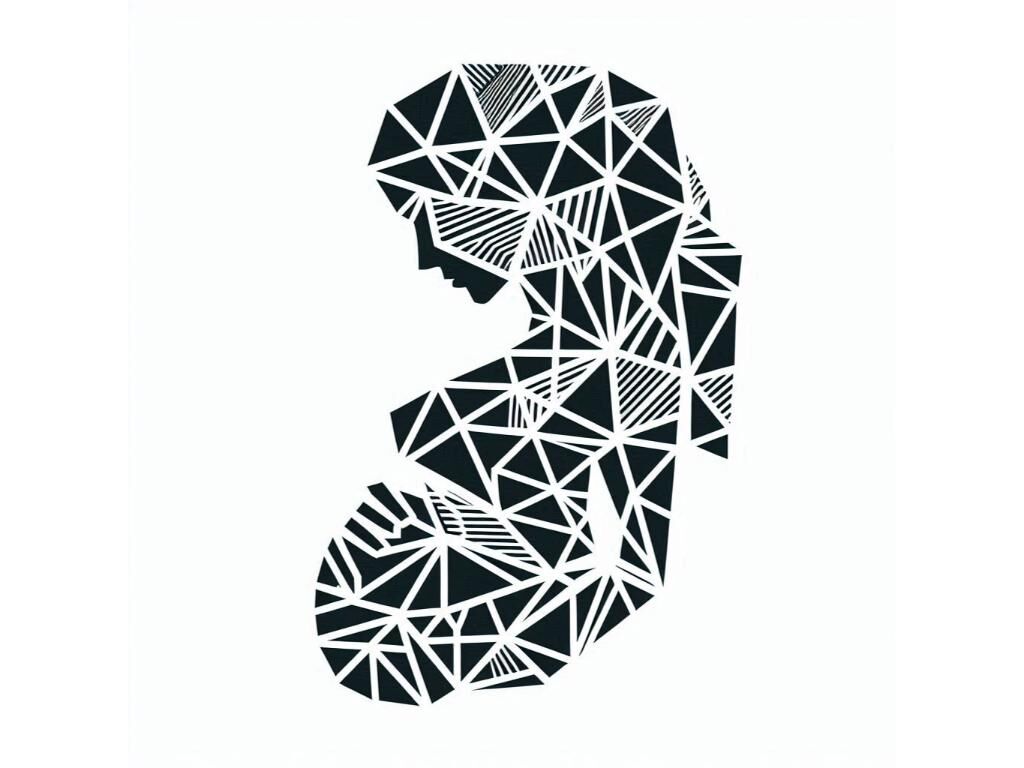Understanding Your Pregnancy Journey: Signs, Growth, And Care Tips
Finding out you're expecting is, for many, a moment filled with so much excitement, perhaps a little nervousness, and certainly a whole lot of questions. It's a time of amazing change for your body and, of course, for the tiny new person growing inside you. You might find yourself wondering about every little feeling, every new symptom, and what it all means for you and your baby. This journey, you know, is truly unique for everyone.
As your body starts to shift, you might notice things are just a little different. Tender breasts, feeling sick to your stomach, or simply being very, very tired are some of the first signs many women experience. These early signals, it's almost like your body is giving you a quiet heads-up. Learning about these, and even some less obvious ones, can really help you feel more prepared for what's ahead.
This article is here to walk with you through some of the big questions and common experiences that come with pregnancy. We'll look at how your baby is growing, what those early signs might mean, and even talk about staying well. We'll also cover things like fertility and how to manage certain health concerns, because that, too, is a big part of the picture. So, let's explore this wonderful time together.
- Bestie Hangout Dti
- Monkey Easy Drawing
- How To Cut The Neck Of At Shirt
- Hair Slicked Back With Taper
- Como Eliminar Una Cuenta De Instagram
Table of Contents
- Early Signals Your Body Might Be Pregnant
- Your Baby's Amazing Development
- Thinking About Getting Pregnant?
- Staying Well During Your Pregnancy
- Frequently Asked Questions About Pregnancy
- A Journey of Discovery and Care
Early Signals Your Body Might Be Pregnant
Sometimes, your body gives you little hints very early on that something wonderful is happening. You might not even notice any symptoms at first, and that's perfectly fine. But for many, there are some pretty common early signs that might make you think, "Could this be it?" These can feel a bit like pre-menstrual symptoms, which can be confusing, but there are often subtle differences.
One of the most widely known early signals is a missed period. If your period is usually pretty regular and it's late, that's often the first thing that gets people thinking. But there's more to it than just that. You might find your breasts feel unusually tender or sore, almost like they're a bit swollen. This is actually a very common feeling for many women right at the start.
Feeling tired, really, really tired, is another big one. This isn't just regular tiredness; it's often a deep fatigue that makes you want to nap even after a full night's sleep. Your body is doing a lot of work right now, making a whole new person, so it needs extra rest. And then there's nausea, often called "morning sickness," though it can hit any time of day or night. Some women feel a bit queasy, while others might actually throw up. It's a very real experience for many.
Less obvious signs can pop up too. You might notice you need to go to the bathroom more often, or you might have a strange metallic taste in your mouth. Some women also experience a heightened sense of smell, where everyday odors suddenly seem very strong or even unpleasant. Mood swings, too, are a pretty common part of the early days, thanks to all those shifting hormones. It's a lot for your body to adjust to, you know.
It's worth noting that some women who experience an ectopic pregnancy, which is when the fertilized egg implants outside the uterus, can still have these usual early signs. They might have a missed period, tender breasts, or feel sick. This is why it's always a good idea to talk to a healthcare professional if you have concerns or get a positive test result, just to make sure everything is where it should be. They can offer guidance and support, which is very helpful.
Your Baby's Amazing Development
As your pregnancy goes on, you may wonder how your baby is growing and developing inside you. It's a truly amazing process, happening week by week, sometimes even day by day. From a tiny cluster of cells, your baby transforms into a fully formed little person, ready to meet the world. It's really quite incredible to think about all the changes happening in such a short time.
In the very early weeks, your baby is just starting to form its major organs and systems. The heart, for instance, begins to beat very early on, often before you even know you're pregnant. The brain and spinal cord are also developing at a rapid pace. It's a period of very fast, fundamental growth, laying the groundwork for everything else. You might not feel much happening yet, but your baby is busy.
As the weeks turn into months, your baby's features become more defined. Tiny fingers and toes appear, and facial features begin to take shape. Muscles and bones grow stronger, and your baby starts to move around, though you might not feel these movements until a bit later. These little flutters and kicks are, for many, one of the most exciting parts of the journey. It's a beautiful way to connect with your little one.
Later in pregnancy, the focus shifts to growth and maturation. Your baby gains weight, and its lungs and other organs continue to develop, preparing for life outside the womb. They start practicing breathing movements and even develop sleep-wake cycles. It's almost like they're getting ready for their grand entrance. You can use information from your healthcare provider to follow along with what's happening each week, which can be very reassuring and exciting.
Every day you might have more questions about a healthy pregnancy and how your baby is progressing. It's completely natural to be curious about milestones like when they'll start hearing sounds or when their eyes might open. Your healthcare team is there to help answer these questions and provide updates on your baby's development, giving you a clearer picture of this incredible journey.
Thinking About Getting Pregnant?
For many couples, the desire to start a family is a very strong one. If you're looking for tips on how to get pregnant, there are some practical steps you can take to make the most of your fertility. It's not always as simple as just trying, and sometimes a little bit of planning can go a long way. Understanding your body's natural rhythms is a pretty good place to start, you know.
One of the most important things is to understand your menstrual cycle and when you are most fertile. This usually involves tracking your ovulation, which is when an egg is released from your ovary. There are different ways to do this, like using ovulation predictor kits or tracking your basal body temperature. Knowing your fertile window can really help you time things better, which is key.
Lifestyle choices also play a big part. Eating a balanced diet, getting regular, moderate exercise, and trying to manage stress can all contribute to better overall health and, in turn, better fertility. Quitting smoking and limiting alcohol intake are also very important steps for both partners. It's about creating a healthy environment for a potential pregnancy, basically.
Sometimes, despite your best efforts, getting pregnant can take a bit longer than you expect. If you've been trying for a while without success, it's a good idea to talk to a healthcare professional. They can offer guidance, run some tests, and help you figure out if there are any underlying issues that might be making it harder. They can also suggest different options or treatments if needed. It's always good to get expert advice when you need it.
For instance, if you're over 35, many experts suggest talking to a doctor after six months of trying, rather than a full year. This is because fertility can naturally decline a bit with age, so getting help sooner can be helpful. They can provide personalized advice and support, which is quite reassuring during what can sometimes be a frustrating time.
Staying Well During Your Pregnancy
Keeping yourself healthy during pregnancy is super important for both you and your growing baby. It involves a mix of good habits, listening to your body, and knowing when to ask for help. This period, it's a time when your body is working overtime, so giving it the best care you can is really vital. You want to feel as good as possible, too.
Managing Common Pregnancy Concerns
Even though pregnancy is a natural process, it comes with its own set of common concerns. For example, yeast infections can be more frequent during this time due to hormonal changes. It's a bit of an annoyance, to be honest. But the good news is, you can safely treat a yeast infection during pregnancy with antifungal vaginal creams or suppositories. Your doctor can recommend the best option for you, and it's always wise to check with them before using any over-the-counter remedies.
Heartburn and indigestion are also pretty common, especially as your baby grows and puts more pressure on your stomach. Eating smaller, more frequent meals, avoiding spicy or fatty foods, and staying upright after eating can often help. Leg cramps, particularly at night, can also be a bother. Gentle stretching and staying hydrated might offer some relief. These little discomforts, you know, are just part of the journey for many.
Swelling in your feet and ankles is another frequent visitor. Elevating your legs and wearing comfortable shoes can help manage this. It's a good idea to tell your healthcare provider about any swelling, especially if it's sudden or severe, just to be on the safe side. Constipation is also a common complaint, but increasing your fiber intake and drinking plenty of water can often make a big difference. Staying active, even with gentle walks, can help too, apparently.
Medications and Your Health
When you're pregnant, you become very, very careful about what you put into your body. This includes medicines, even those you might have taken regularly before. Is it safe to take Claritin or other allergy medicines during pregnancy? This is a question many people ask. Sometimes, health care professionals do recommend certain allergy medicines during pregnancy, but it really depends on the specific medicine and your situation. It's always best to talk to your doctor or pharmacist before taking anything new, or continuing something you used before.
Other antibiotics are thought to pose risks during pregnancy. For example, tetracyclines can affect bone growth and cause a baby's teeth to discolor. This is why doctors are very particular about which medications they prescribe. They weigh the benefits against any potential risks to your baby. It's a careful balance, you know. Always make sure your doctor knows you are pregnant before they prescribe any medication, or even if you are just thinking about taking something you bought without a prescription.
Even over-the-counter pain relievers or cold medicines need a second look. What might be fine when you're not pregnant could be less ideal now. Your healthcare provider can guide you on safe choices for headaches, colds, or other common ailments. They can tell you what's okay and what you should really avoid. It's about being informed and making the best choices for your little one.
Dealing with Specific Health Conditions
If you have a pre-existing health condition, like epilepsy, finding out you're pregnant can bring up even more questions and concerns. Concerned about how epilepsy might affect your pregnancy? It's a very valid worry, and it's something your medical team will help you manage very carefully. They'll want to work closely with you to ensure both your health and your baby's health are looked after. You might need some specialized care.
For conditions like epilepsy, your doctor might adjust your medication or monitor you more closely throughout your pregnancy. The goal is to control your condition while minimizing any potential risks to your baby. This often means a team approach, with your neurologist and obstetrician working together. They will help you find out what kind of care you might need, which is really important for peace of mind. Regular check-ups and open communication with your doctors are key here, too.
Similarly, if you have diabetes, thyroid issues, or high blood pressure, these conditions will need careful management during your pregnancy. Your healthcare provider will likely want to see you more often and may adjust your treatment plan. The aim is always to keep you and your baby as healthy as possible throughout this special time. It's a partnership between you and your care team, basically, to make sure everything goes smoothly.
Frequently Asked Questions About Pregnancy
Here are some common questions people often have about pregnancy, offering a bit more clarity:
What are the very first signs of pregnancy?
The earliest signs of pregnancy can vary a lot from person to person, but a missed period is often the first clue. Other common early signals include feeling very tired, having tender or sore breasts, and experiencing nausea, sometimes called "morning sickness." Some women also notice increased urination, a heightened sense of smell, or even a metallic taste in their mouth. These signs can appear even before you miss a period, though they might be subtle.
How does a baby develop during pregnancy?
A baby's development during pregnancy is truly incredible, unfolding week by week. In the very beginning, major organs like the heart and brain start to form. As time goes on, features like fingers and toes appear, and muscles begin to strengthen. Later, the baby grows significantly in size and weight, and their organs mature, preparing them for life outside the womb. It's a continuous process of growth and refinement, leading to a fully developed baby.
Is it safe to take allergy medicine when you're pregnant?
Whether it's safe to take allergy medicine during pregnancy really depends on the specific medicine and your individual situation. Some allergy medicines are generally considered safe, and healthcare professionals might recommend them if your symptoms are severe. However, other medicines might not be suitable. It's always, always best to talk to your doctor or a pharmacist before taking any allergy medicine, or any medication for that matter, when you are pregnant. They can advise you on the safest options for you and your baby.
A Journey of Discovery and Care
The journey of pregnancy is, in a way, a remarkable time of discovery and change. From those very first, subtle signs to watching your baby grow and develop inside you, every moment holds something new. We've talked about the early hints your body gives you, how your baby takes shape week by week, and even some tips for when you're trying to conceive. It's a period that brings so many questions, and finding reliable answers can make all the difference.
Staying well throughout this time means paying attention to your body, understanding common concerns, and knowing how to manage health conditions or medications safely. Remember, your healthcare team is your best resource for personalized advice and support. They are there to help you every step of the way, making sure you and your baby are as healthy as can be. It's a collaborative effort, basically.
As you move through your pregnancy, whether you're just starting to wonder or are well into the experience, keep learning and asking questions. Each pregnancy is unique, and your body is doing something truly extraordinary. For more information on navigating this special time, you can find valuable resources from trusted organizations like the American College of Obstetricians and Gynecologists. You can also learn more about pregnancy care on our site, and find helpful tips for a healthy pregnancy.



Detail Author 👤:
- Name : Anne Borer PhD
- Username : emily16
- Email : boris93@gmail.com
- Birthdate : 1996-04-14
- Address : 966 Strosin Walk Kovacekhaven, WI 93071
- Phone : (947) 732-2916
- Company : Beier, Heller and D'Amore
- Job : Lay-Out Worker
- Bio : Nesciunt quo rerum vel quia. Non error libero beatae. Vel maiores doloremque laboriosam magni temporibus ad voluptas. Dolor eos repudiandae illum.
Socials 🌐
tiktok:
- url : https://tiktok.com/@bailee.lueilwitz
- username : bailee.lueilwitz
- bio : Voluptatum repellendus et illum ullam.
- followers : 258
- following : 2829
twitter:
- url : https://twitter.com/lueilwitz2018
- username : lueilwitz2018
- bio : Debitis repellendus eligendi quia nostrum. Eum iste illum architecto velit similique. Minima quasi ex porro perspiciatis quo est.
- followers : 5949
- following : 691
linkedin:
- url : https://linkedin.com/in/lueilwitz2025
- username : lueilwitz2025
- bio : Excepturi vero repellat quis.
- followers : 2779
- following : 2380